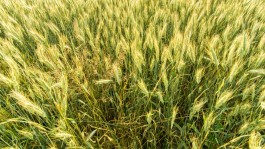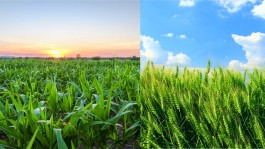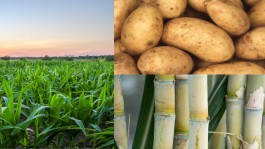Barley
Every year around 1.9 million tonnes of barley is used for malting purposes, making the UK brewing industry the biggest buyer of barley. Spring barley is predominantly used for producing malt for distilling and lager type brewing malt, whilst winter varieties are used mainly in the production of ale and food malts.
Barley is a major cereal crop, grown for food sources and the brewing industry.
Development & Growth
Sown in the autumn barley supports vigorous growth early season giving aggressive spring weed control and is generally early to harvest.
Weed Control Solutions
Early weed control is the key to winter cropping success. Do not expect large yield benefits from weed control in winter cereals, but weed control is essential for grain quality, rotational weed control benefits and harvest efficiency.
Leaving weeds uncontrolled will:
- Increase the weed seed burden in the soil affecting other crops in the rotation
- Reduce the efficiency of combining
- Contaminate grain samples with weed seed
- Potentially increase moisture levels in the straw and grain
- Delay harvest, lead to drying costs, require pre-harvest desiccation
Impact marketable grain e.g. where high quality is demanded for malting and seed cropsIncrease selection pressure for resistance development
The following considerations should be taken into account when formulating your weed control action plan:
Common weed targets in winter cereals
Broad-leaved weed resistance
BASF label and off-label approvals for winter cereals
By the nature of the time of year, winter cereals may face different weed challenges than Spring cereals due to the different germination pattern of weeds. This can most certainly be beneficial when thinking about the control of black-grass using spring cereals as the vast majority of black-grass will germinate in the autumn, removing the threat in Winter cereals.



